East Midlands Ambulance Service workers begin strike action over pay
- Published
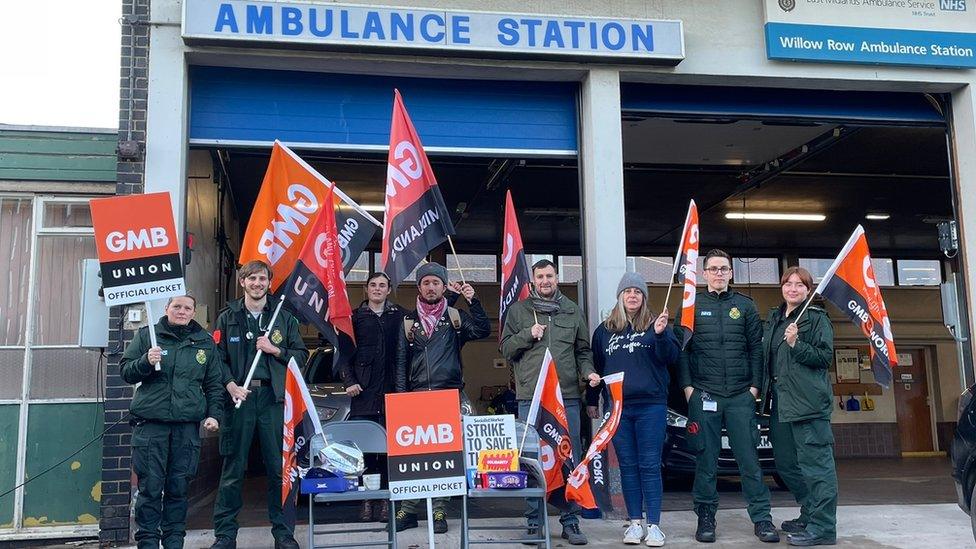
Workers formed a picket line outside an ambulance station in Derby city centre
East Midlands Ambulance Service (EMAS) workers have begun strike action as part of a national pay dispute with the government.
The 24-hour action from ambulance staff across most of England and Wales on Wednesday is expected to affect non life-threatening calls only.
In the East Midlands, the action by the GMB union - which started at 06:00 GMT - will involve up to 50% of staff.
EMAS said, external it would aim to minimise the impact of strike action on patients.
The action means patients who have non life-threatening conditions will have to wait longer for an ambulance.
The NHS said "where safe and appropriate", those people might be asked to make their own way to hospital, but should seek advice from 111 or 999 before doing so.
The strike will end at 06:00 on Thursday, and is set to continue from 06:00 on 28 December, to 06:00 on 29 December.
Ferdousara Uddin, regional organiser from GMB, said: "It's not just about pay. It's about understaffing and the cuts being made that put patients at risk.
"The ambulance services are running at deeply unsafe levels and under extreme pressure every day.
"We need action from the government and proper investment into the service."
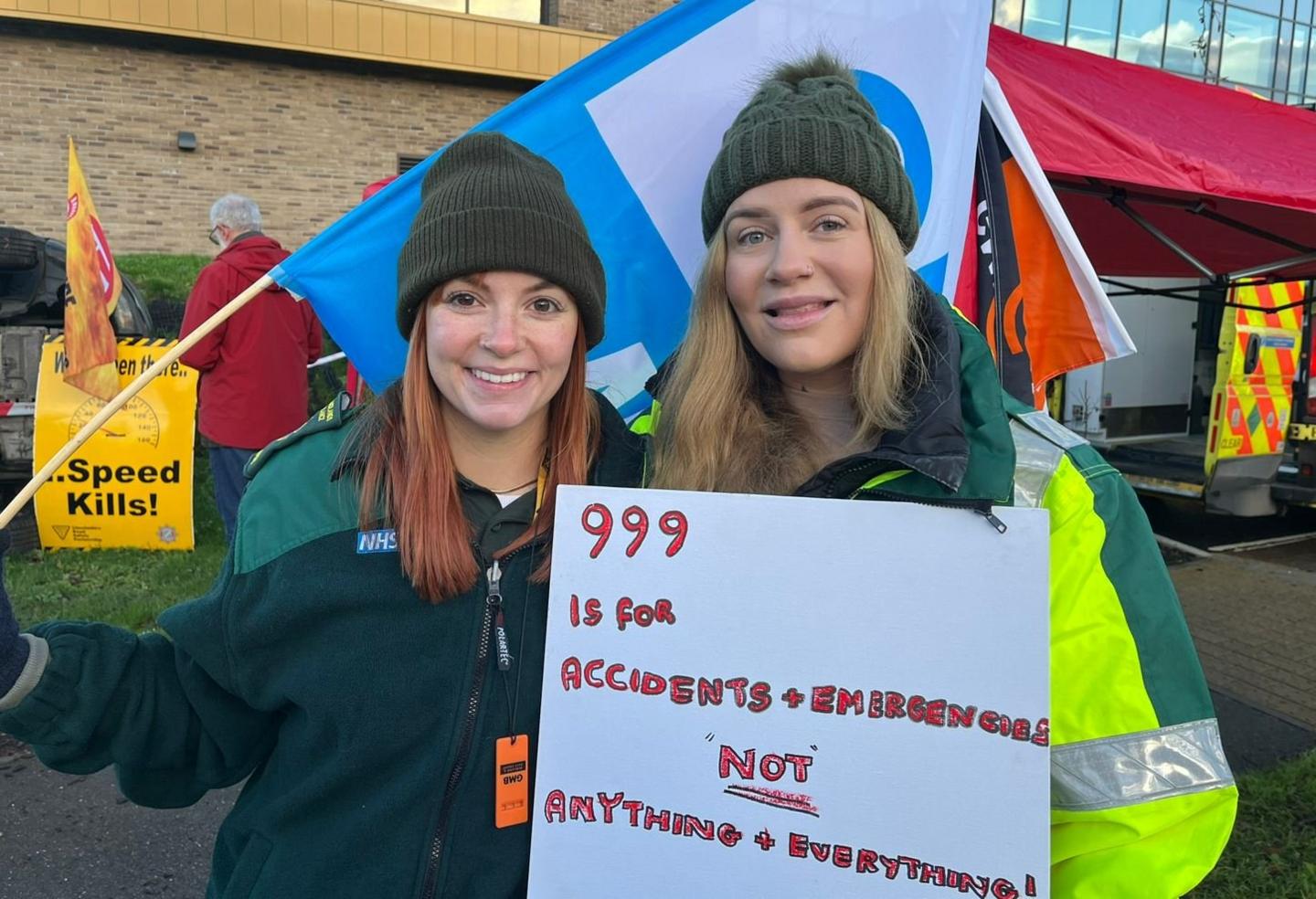
Paramedics Ellie Flinton and Melissa Farrell on strike in Lincoln
Ms Uddin added: "You can see and hear for yourself - it's been fantastic. We've had people stopping to speak to the ambulance workers to show their support.
"They've dropped off food, or just to have a chat".
Melissa Farrell, 36, a paramedic on the picket line in Lincoln, said: "On Friday night I was on the back of an ambulance outside Lincoln A&E for seven hours followed by nine-and-a-half hours on Saturday night.
"It's about better working conditions for staff and for the public.
"We want to help the public and at the moment our hands are tied while we're stuck outside A&E. We're unable to get to those who truly need us.
"We are here in the event of a real emergency, but at the moment we're overloaded with going to things which could be helped by other means."
Her colleague Ellie Flinton, 30, said: "There's a national shortage of nurses, paramedics, healthcare workers and we want the pay to be attractive so that people want to come into this job.
"We want our pay to be representative of what we do so people want to stay as well.
"In my opinion there are lives being put at risk every single day because of the way the service is currently running."
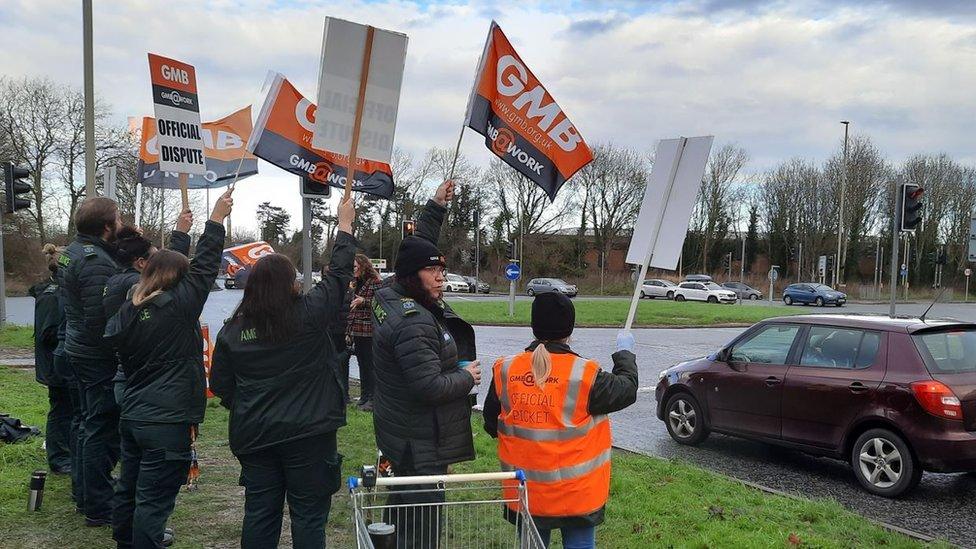
There was also a picket line outside Gorse Hill ambulance station in Leicester
One paramedic based in Nottinghamshire told PA News that patients' lives had been at risk "longer than these strikes were even considered".
Tom, 33, who did not want to provide his last name, said: "I've attended elderly patients who have been on the floor with broken hips for over 20 hours.
"They've been waiting that long that their limbs have started to become necrotic (dying tissue), resulting in major surgery to remove said limbs."
"In 14 hours I saw and attended one patient of my own and did not have a break... And there were, at one point, 11 ambulances stuck at (the) hospital unable to be freed back onto the road.
"The conditions we work in on a regular basis don't enable us to do the job we want to do to its full capacity and is putting patients' lives at risk long before strikes were even considered.
"We regularly go 12, 13, 14, 15, 16 hours without a break or even so much as a brew or any warm food, or food at all, due to these delays."
"The ambulance service striking is one that has very little bearing on the grand scheme of things but hopefully has a big influence on highlighting the already failing NHS we so desperately need to treasure and invest in."

Analysis
By Rob Sissons, BBC East Midlands Today health correspondent
Another day, another strike. On Wednesday, it is the turn of ambulance workers and at England's second biggest ambulance trust.
There is a degree of apprehension about how the day will pan out. It is the GMB union that is striking with hundreds of members across many grades of staff from ambulance paramedics to call handlers. The ambulance service has always been about managing risk triaging 999 calls - those risks increase dramatically when a swathe of staff are missing on strike.
The GMB union says relations with the trust are good and they will liaise across the day. If there is a life-threatening emergency and no nearby ambulances, some strikers could be asked to come back to work.
All disputes eventually come to an end but in the case of NHS workers, it feels like we in so many ways are stuck at the beginning. The government insists the pay claims are unaffordable in the current economic context.
All sides are fighting for the hearts and minds of the public.

The government has said it stands by a pay offer recommended by the independent pay review body and has criticised how the strike has been organised.
East Midlands Ambulance Service is made up of more than 4,000 workers represented by the GMB, Unison and Unite unions.
Unison has 1,296 staff at EMAS - made up of the likes of paramedics, technicians, call centre staff and mechanics.
Its members are not striking as the BBC understands they were 40 votes short of meeting the 50% threshold for action.
New ballot papers for its members will be issued in the new year.
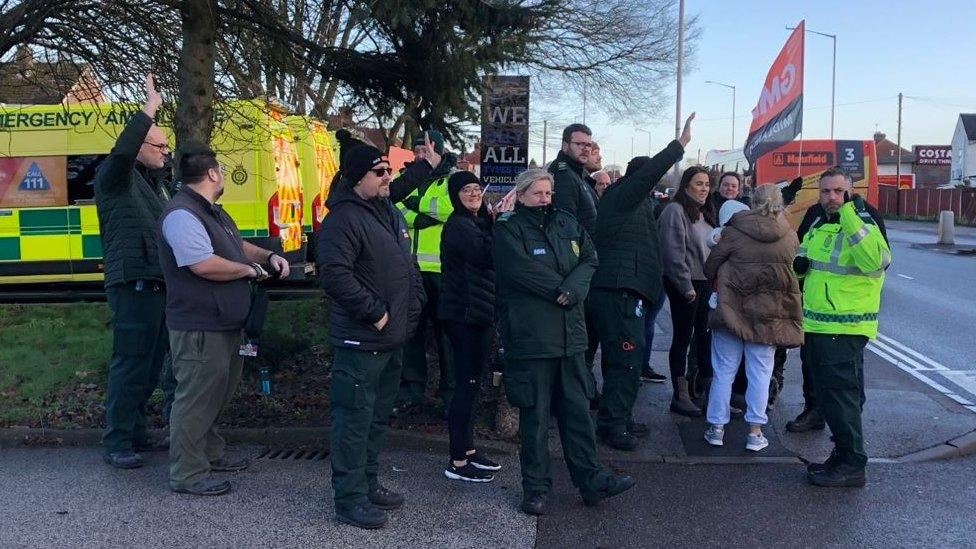
The picket line near King's Mill ambulance station in Sutton-in-Ashfield
Ben Holdaway, director of operations at EMAS, said: "During the period of the dispute, we will do all we can to minimise the impact on patient safety and will continue to work very closely with trade union colleagues, regional service providers and NHS employers.
"Patients should continue to call for an ambulance as normal if they experience a life-threatening emergency and should continue to access other more appropriate services for any other illnesses or injuries.
"We fully respect the right of NHS staff to take lawful and peaceful industrial action, however we do urge national employer representatives and trade union colleagues to proactively engage and reach a negotiated settlement to the dispute as quickly as possible."
The action comes as a "critical incident" was declared across Nottinghamshire, due to high demand for hospital services.
Operations have been cancelled, with nurses across the country also walking out on Tuesday.

Follow BBC East Midlands on Facebook, external, Twitter, external, or Instagram, external. Send your story ideas to eastmidsnews@bbc.co.uk.
Related topics
- Published10 January 2023
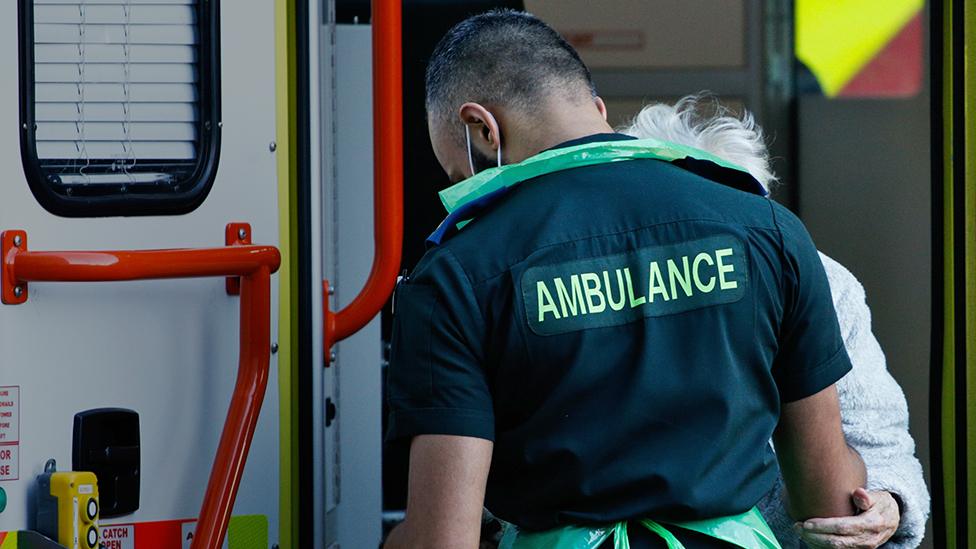
- Published6 October 2022
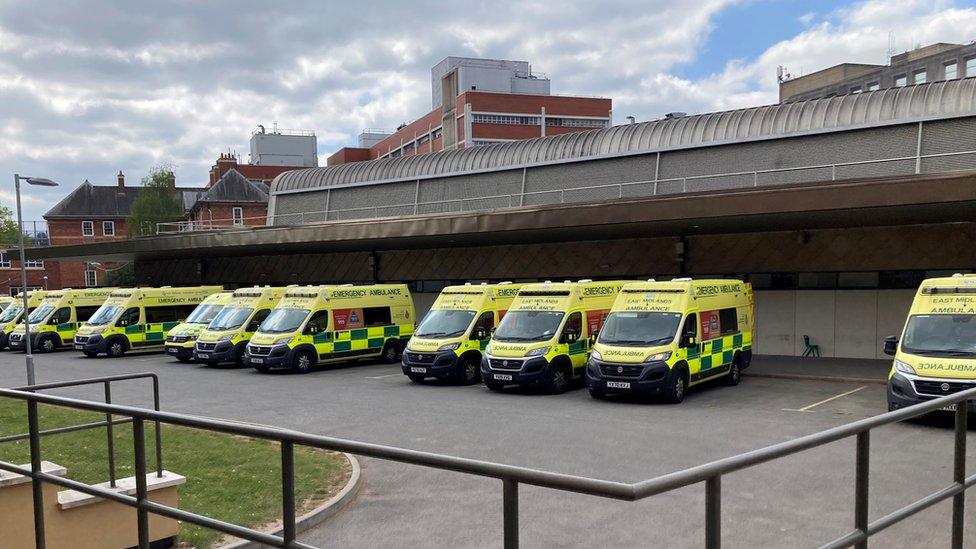
- Published5 October 2022
